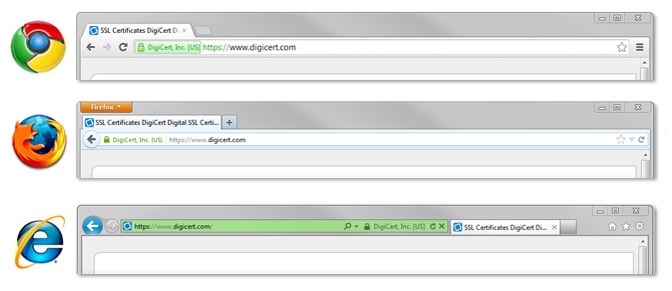Should I Buy from This Site? How to Know if a Website is Secure

With the gift giving season coming up, many people will be doing their holiday shopping online. In fact, Americans will spend an estimated $61 billion shopping online this holiday season. Even mobile shopping is up 25% since last year.
With all of this online shopping, lots of personal information—phone numbers, home addresses, and credit cards—will be flying around the Internet. This personal data translates to dollars for cyber criminals who are gearing up for the heavy traffic and increased online sales in the upcoming months.
Protecting Your Data
Even though brick-and-mortar stores like Target and Home Depot have been targets of data theft over the last year, ecommerce transactions are also vulnerable to attacks. In addition, online shoppers are vulnerable to scams like phishing or fraudulent websites, Man-in-the-Middle attacks, spam/phishing emails, pop-ups, social engineering attacks, and fraudulent charities or causes.
Once you give an online retailer your information, it’s their job to protect the data that you gave them, so it’s important that you be careful who you trust with your information online. But how do you know who to trust? How do you know if a site is legitimate and if you should give them your data?
How to know if a Website Is Secure
Before giving any information to a website, you should make sure it is secure. Below are some quick tips that you can use to tell if a site is secure.
Check the SSL Certificate
Look at the URL of the website. If it begins with “https” instead of “http” it means the site is secured using an SSL Certificate (the s stands for secure). SSL Certificates secure all of your data as it is passed from your browser to the website’s server. To get an SSL Certificate, the company must go through a validation process.
However, there are a few different levels of validation—and some of them are easier to get through than others. The lowest level of validation, Domain Validation (DV), simply validates ownership of the domain and not the legitimacy of the organization requesting the certificate. In other words, if you bought the domain “amaz0n.com” and requested a certificate for it, you would get the certificate because you own the domain.
The highest level of validation, Extended Validation (EV), is the safest and most extensive. With Extended Validation the company requesting the certificate has to prove their identity as well as their legitimacy as a business. You can tell if a site has an EV certificate by looking at the address bar. Browsers show a green address bar with a lock icon for websites with EV certificates, as shown in the picture top of post.
Don'forget to share this post.
Don'forget to share this post.



